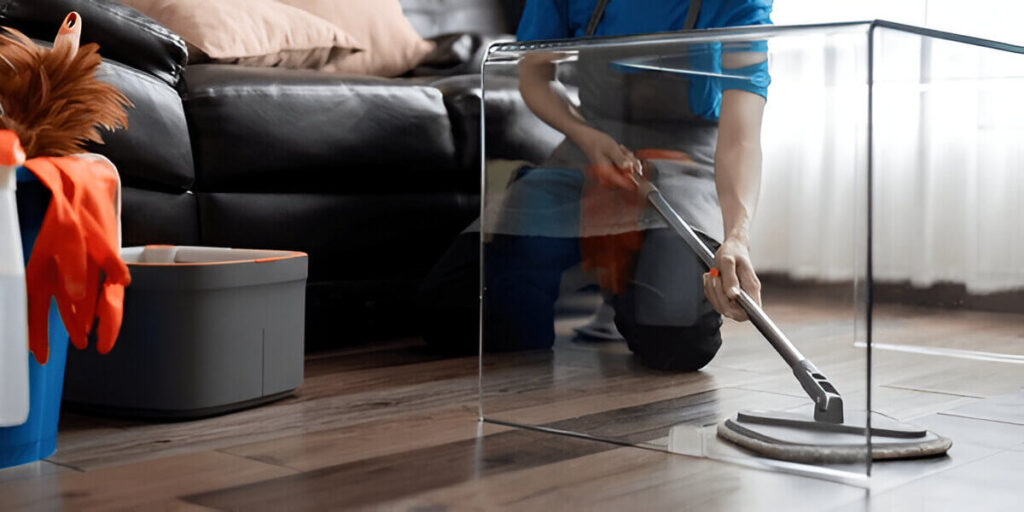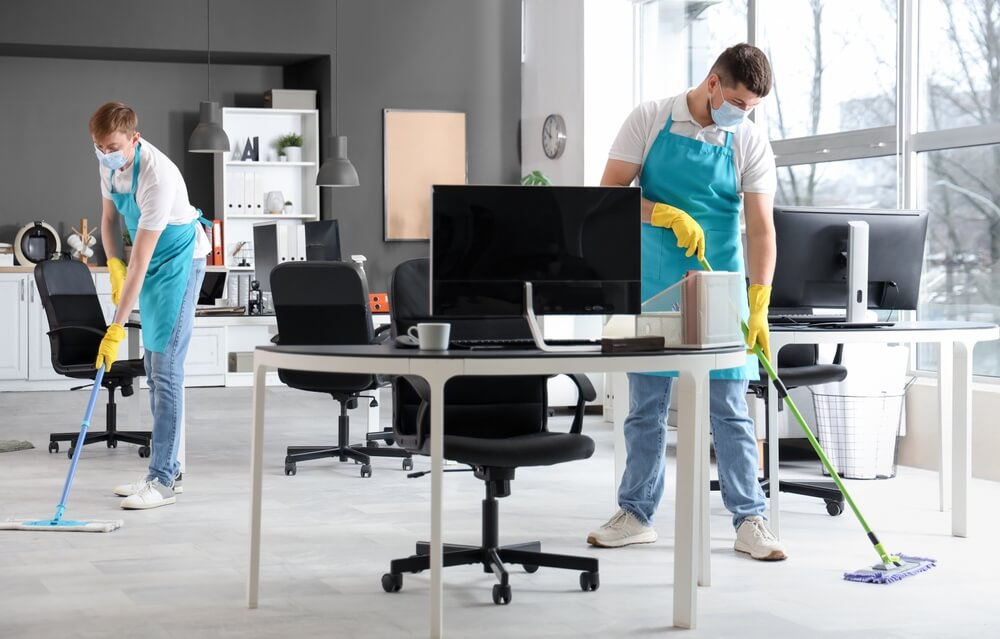In the world of business, first impressions are everything. Whether it’s a client walking through your doors or a potential employee touring your office, cleanliness can make or break that initial perception. But what happens when unexpected messes or disasters strike?
That’s where emergency cleaning services come into play. Knowing when to call in the cavalry can save you time, money, and stress. In this article, we’ll explore the scenarios that warrant an emergency cleaning response for your commercial property.
Understanding Emergency Cleaning Services
1. What Are Emergency Cleaning Services?
Emergency cleaning services are specialized cleaning solutions that can be called upon at a moment’s notice. These services are designed to tackle unexpected situations that standard cleaning routines simply can’t handle. Whether it’s a spill, a flood, or an outbreak of illness, emergency cleaning teams are equipped to respond quickly and effectively.
2. Why Are They Important?
Emergencies can happen at any time, and the longer you wait to address a mess, the worse it can become. Emergency cleaning services are crucial because they:
- Prevent Further Damage: Quick response can mitigate damage to property and assets.
- Ensure Safety: Spills and messes can create hazards that put employees and clients at risk.
- Maintain Reputation: A clean environment reflects professionalism, which can impact client trust and employee morale.
Common Scenarios for Emergency Cleaning
3. Water Damage from Leaks or Floods
One of the most common emergencies that commercial properties face is water damage. Whether it’s from a burst pipe, heavy rain, or a malfunctioning appliance, water can wreak havoc on your property.
- Signs You Need Help: If you notice water pooling in areas where it shouldn’t be or if there are visible signs of water damage like stains on the ceiling or walls, it’s time to call in the professionals.
- Quick Action Required: Water can damage flooring, walls, and equipment. The longer it sits, the more extensive the damage can become, leading to costly repairs.
4. Fire Damage
Fires can be devastating, and even small incidents can leave behind significant cleaning challenges.
- Smoke and Soot Cleanup: After a fire, even if the flames didn’t spread, smoke and soot can cause lingering odors and health issues. Specialized cleaning is necessary to remove these hazards.
- Structural Concerns: If a fire has compromised any structural elements, immediate cleaning and assessment are vital to ensure safety.
5. Biohazard Situations
In certain industries, you may face biohazard situations that require immediate attention.
- What Counts as a Biohazard?: This includes blood spills, chemical spills, or any situation where hazardous materials are present. If someone has been injured or there’s a chemical leak, it’s crucial to call emergency cleaning services.
- Health Risks: Biohazards can pose serious health risks to your employees and clients. Don’t attempt to clean these situations yourself; professional services have the necessary training and equipment.
6. Severe Spills and Stains
Even if your business isn’t facing a major disaster, certain severe spills can warrant emergency cleaning.
- Types of Spills: Think of things like grease in a kitchen, ink on carpets, or chemical spills in a lab. Some substances can damage surfaces if not cleaned up quickly.
- Immediate Attention: For instance, a grease spill in a restaurant can not only create an unsightly mess but also pose a slip-and-fall hazard.
Other Situations to Consider
7. Pest Infestations
Pest infestations can be more than just a nuisance; they can also be a health hazard.
- Signs of Infestation: If you notice droppings, strange odors, or visual sightings of pests, it’s time to act. Emergency cleaning services can help sanitize affected areas and prepare for pest control.
- Immediate Cleanup Needed: The presence of pests can drive clients and employees away, making it essential to address the issue promptly.
8. Vandalism and Property Damage
Unfortunately, vandalism can occur at any commercial property, leaving behind a mess that needs immediate attention.
- Graffiti and Broken Fixtures: If your property has been vandalized, you’ll want to clean it up quickly to maintain your image and prevent further vandalism.
- Cleaning Protocols: Specialized techniques may be required to remove graffiti or restore damaged areas without causing further harm.
9. Illness Outbreaks
In today’s world, an outbreak of illness can spread quickly, especially in workplaces with close contact.
- When to Act: If multiple employees report being ill, or if there’s a confirmed case of a contagious disease, immediate cleaning and sanitization are necessary.
- Preventative Measures: Professional cleaning services can effectively disinfect high-touch areas to prevent further spread of illness.
10. Seasonal Deep Cleaning Needs
Sometimes, seasonal changes can bring about a need for deep cleaning, especially in high-traffic commercial properties.
- Before and After Events: If you’re hosting a large event or transitioning from one season to another, consider calling in emergency cleaning services to ensure your space looks its best.
- Post-Event Cleanup: After events, you might face a larger mess than usual. Professional services can help restore your space quickly and efficiently.

How to Choose the Right Emergency Cleaning Service
11. Look for Experience and Specialization
Not all cleaning services are created equal, especially when it comes to emergencies.
- Check Credentials: Look for companies that specialize in emergency cleaning and have the necessary certifications and experience in your industry.
- Response Time: Ensure they can respond quickly. Emergencies don’t wait for convenient hours!
12. Read Reviews and References
Don’t just take a company’s word for it—do your research!
- Customer Feedback: Look for reviews on their website or third-party sites. This can give you insight into their reliability and quality of service.
- Ask for References: If you’re still unsure, don’t hesitate to ask for references from past clients.
13. Confirm Insurance and Safety Protocols
Safety is paramount during an emergency cleaning situation.
- Insurance Coverage: Ensure that the cleaning service is fully insured to protect your property and liability.
- Safety Protocols: Ask about their safety measures and training for handling specific emergency situations, such as biohazards or structural damage.
Conclusion
Knowing when to call for emergency cleaning services can save your business time, money, and stress. Whether it’s water damage, biohazard situations, or pest infestations, quick action is crucial to minimize damage and maintain a professional environment.
By understanding the scenarios that warrant emergency cleaning and choosing the right service provider, you can ensure your commercial property stays clean and safe, even in the face of unexpected challenges.
FAQs
1. How quickly can emergency cleaning services respond?
Most emergency cleaning services can respond within a few hours, depending on their availability and your location. It’s always best to check beforehand.
2. Are emergency cleaning services more expensive than regular services?
Yes, they often are, due to the urgent nature of the work. However, the cost is often justified by the quick response and specialized services provided.
3. Can I perform emergency cleaning myself?
While some minor spills can be handled in-house, it’s best to call professionals for serious issues like water damage, biohazards, or large-scale messes to ensure proper handling and safety.
4. What should I look for in a cleaning service?
Look for experience in emergency situations, quick response times, good reviews, and proper insurance coverage.
5. How can I prevent emergencies from occurring?
Regular maintenance, inspections, and staff training on handling potential hazards can help reduce the likelihood of emergencies.

